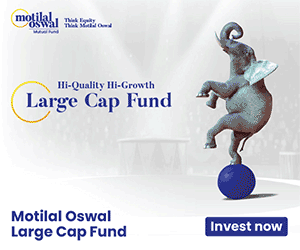Three Indicators that ESG Compliant Companies to benefit

We live in a complex interconnected world. If anything, Covid-19 has shown us how co-dependent we are as global citizens and economies. This has necessitated an increasing focus on Environmental, Social and Governance (ESG) parameters in the manner Governments form policies, companies operate, and financial institutions invest. The need for ESG has further amplified in the backdrop of this pandemic. As a nation it is imperative for us to be vigilant of the risks emanating from challenges of this nature. In the recent few months certain indicators have emphasised how companies that are ESG compliant are pre-disposed to benefit hugely from this shift in mindset.
India’s ESG emphasis may benefit compliant companies
A report released recently by global think tanks, including TERI (The Energy and Resources Institute) says that India was the only “2°C compatible” country and the only G20 nation which is on track to meet what it had promised under the Paris Agreement (The Paris Agreement’s central aim is to strengthen the global response to the threat of climate change by keeping a global temperature rise this century well below 2 degrees Celsius above pre-industrial levels and to pursue efforts to limit the temperature increase even further to 1.5 degrees Celsius). Aligned to these efforts, in the recently held Virtual Global Investor Roundtable (VGIR) 2020 by the Prime Minister, which was attended by heads of 20 top institutional investors from across the world, there was a strong and clear message from the Government of India on its commitment towards ESG. In this forum attended by some of the world’s largest institutional investors, the Prime Minister stressed on India’s focus on ESG and how it will follow the path of growth with equal focus on the Environmental, Social and Governance parameters. This in a way sets a future roadmap for India Inc. to incorporate ESG in an increasingly active way. For those companies that are already compliant and command high ESG scores stand to gain further, as well as see increasing investor interest. Probable incremental policies and incentives from the Government will only further propel these companies and sectors.
Possible changes in U.S. climate policies could boost ESG investing
Moving from India’s ESG focus, let’s look at the United States of America which just completed a Presidential election the whole world was watching. U.S. so far lags far behind Europe in ESG investing. According to Morningstar, of the total global ESG assets, European funds alone held 82% of it in the third quarter while U.S. funds held 14%. The incoming new administration of the United States of America and their extensive focus on climate and plans for implementing policies around climate change can be beneficial for India in terms of collaborating with the U.S. towards this direction.
Firstly the new administration had already stated it will join back the Paris Climate Agreement if it came to power. The President-elect has already appointed a Special Presidential Envoy for climate, the same person who is considered to be one of the main architects of the Paris accord, who has been assigned to fight climate change full-time. Many think that sustainable investing will align perfectly with the new regime’s plans to address issues around climate change and boosting clean energy. There are also plans for making electricity production carbon-free, innovation in clean energy, zero-emission public transport and use of electric vehicles, etc. These plans can propel many companies that are part of the ESG universe.
This in addition to the fact that the incoming President has been vocal in the past about the importance of Indo-US relations and its potential. This can open avenues for working together, among other things, towards initiatives in the environment and sustainability space. The two countries can together work collaboratively on research and development in the space and projects that are of interest to both.
ESG could be a key factor for foreign investment in India
Large investors and institutional players, especially in the US and Europe, are now increasingly investing in companies that meet ESG standards. Globally, sustainable investing assets in the five major markets rose to $ 30.7 trillion in 2018. The reason being increasingly investors are being cognizant about the risks involved around ESG factors outside of pure financial risks while investing in a company. There have been several instances in which due to governance issues, or unethical labour laws a company has seen significant value erosion. In the 2019 Green Intelligence report by The Economist, some 95% of respondents believed that ESG investing is important to their firm, and the overwhelming majority expected that to increase over the next three years. More than 80% believed ESG has a positive financial impact.
For India to attract such investors and increasing the share of FDI in this country, which in turn will generate massive employment, the government policies have to focus on ESG parameters. Going by the Prime Minister’s recent commentary, as well as some of the steps taken by the country as part of the Paris Agreement, the prospects look promising. Work is also underway to achieve the country’s carbon intensity reduction and non-fossil fuel electricity growth capacity commitments by 2030 as part of the Paris accord. India is also the only “2°C compatible” country among G20 nations. In addition to this, India’s reaffirmation of its commitment towards ESG and the likely steps from the U.S. to implement policies towards the same will be beneficial for companies that have and will conform to such standards and best practices going forward. The inflow of foreign funds augurs well both for capital markets as well individual sectors and businesses in driving India’s next leap of growth. Market data suggests that our two years fund raising in key global markets like U.S. & Europe has seen ESG compliant businesses like Technology, Pharma and Financial Services being top beneficiaries of new capital. Studies show that sound sustainability standards lower the cost of capital of companies.
The European Union has already issued several ESG regulations that includes, among others, non-financial reporting directive, sustainability related disclosures regulation that requires investment firms and asset owners to make disclosures on the integration of ESG risks, and Taxonomy regulation that sets out a common classification system for economic activities to be considered environmentally sustainable with focus on sectors that play a key role. What this means? That European investment firms will consider ESG scores for pumping in money. Then we have the U.S. which is one of the main source of capital for the markets and given the excess liquidity and near zero interest rates, emerging markets such as India are likely to benefit. If U.S. pushes the pedal on its climate policies and comes up with EU like guidelines, one can expect more foreign investments chasing the ESG compliant companies.
Mutual Fund Investments are subject to market risk, read all scheme related documents carefully.
Queries
-
What is the benefit of mutual fund STP
Aug 29, 2019
-
How much to invest to meet target amount of Rs 2 Crores
Aug 26, 2019
-
Can I achieve my financial goals with my current mutual fund investments
Aug 24, 2019
-
Can you tell me return of various indices
Aug 19, 2019
-
What would be the post tax return on different investments
Aug 18, 2019
-
Which Principal Mutual Fund scheme will be suitable for my retirement corpus
Aug 16, 2019
-
What is the minimum holding period for availing NCD interest
Aug 4, 2019
Top Performing Mutual Funds
Recommended Reading
Fund News
-
Baroda BNP Paribas Mutual Fund launches Baroda BNP Paribas Multi Asset Active Fund of Funds
May 15, 2025 by Advisorkhoj Team
-
Canara Robeco Mutual Fund launches Canara Robeco Multi Asset Allocation Fund
May 12, 2025 by Advisorkhoj Team
-
Baroda BNP Paribas Mutual Fund launches Baroda BNP Paribas Income Plus Arbitrage Active Fund of Funds
May 12, 2025 by Advisorkhoj Team
-
ICICI Prudential Mutual Fund launches ICICI Prudential Quality Fund
May 6, 2025 by Advisorkhoj Team
-
Tata Mutual Fund launches Tata Income Plus Arbitrage Active FOF
May 5, 2025 by Advisorkhoj Team














